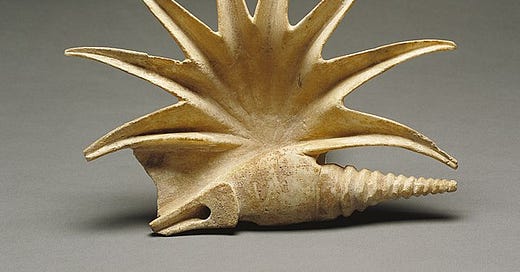Gentle reader,
Last Saturday, John Piper took to the app formerly known as Twitter to help everyone get ready for church by cancelling coffee.
While I don’t love a cup of coffee in the sanctuary, I hardly think this is the meaning of the text from Hebrews. This got me thinking about Piper’s noted “seashells” sermon.
It begins with two stories. First, a sto…
Keep reading with a 7-day free trial
Subscribe to Church Blogmatics by Beth Felker Jones to keep reading this post and get 7 days of free access to the full post archives.





